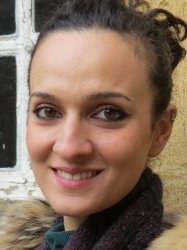Studying at the University of Verona
Here you can find information on the organisational aspects of the Programme, lecture timetables, learning activities and useful contact details for your time at the University, from enrolment to graduation.
Academic calendar
The academic calendar shows the deadlines and scheduled events that are relevant to students, teaching and technical-administrative staff of the University. Public holidays and University closures are also indicated. The academic year normally begins on 1 October each year and ends on 30 September of the following year.
Course calendar
The Academic Calendar sets out the degree programme lecture and exam timetables, as well as the relevant university closure dates..
| Period | From | To |
|---|---|---|
| primo semestre lauree magistrali | Oct 1, 2018 | Dec 21, 2018 |
| secondo semestre lauree magistrali | Feb 25, 2019 | May 31, 2019 |
| Session | From | To |
|---|---|---|
| sessione invernale lauree magistrali | Jan 7, 2019 | Feb 22, 2019 |
| sessione estiva lauree magistrali | May 27, 2019 | Jul 5, 2019 |
| Sessione autunnale | Aug 26, 2019 | Sep 13, 2019 |
| Session | From | To |
|---|---|---|
| Sessione autunnale (validità a.a. 2017/18) | Dec 6, 2018 | Dec 7, 2018 |
| Sessione invernale (validità a.a. 2017/18) | Apr 3, 2019 | Apr 5, 2019 |
| Sessione estiva (validità a.a. 2018/19) | Sep 10, 2019 | Sep 11, 2019 |
| Period | From | To |
|---|---|---|
| Festa di Ognissanti | Nov 1, 2018 | Nov 1, 2018 |
| Festa dell’Immacolata | Dec 8, 2018 | Dec 8, 2018 |
| Vacanze di Natale | Dec 22, 2018 | Jan 6, 2019 |
| Vacanze di Pasqua | Apr 19, 2019 | Apr 23, 2019 |
| Festa della liberazione | Apr 25, 2019 | Apr 25, 2019 |
| Festa del lavoro | May 1, 2019 | May 1, 2019 |
| Festa del Santo Patrono - S. Zeno | May 21, 2019 | May 21, 2019 |
| Attività sospese (vacanze estive) | Aug 5, 2019 | Aug 23, 2019 |
Exam calendar
Exam dates and rounds are managed by the relevant Economics Teaching and Student Services Unit.
To view all the exam sessions available, please use the Exam dashboard on ESSE3.
If you forgot your login details or have problems logging in, please contact the relevant IT HelpDesk, or check the login details recovery web page.
Academic staff
 martina.menon@univr.it
martina.menon@univr.it

Taschini Luca
 luca.taschini@univr.it
luca.taschini@univr.it
 045 802 8736
045 802 8736
Study Plan
The Study Plan includes all modules, teaching and learning activities that each student will need to undertake during their time at the University.
Please select your Study Plan based on your enrollment year.
1° Year
| Modules | Credits | TAF | SSD |
|---|
2° Year activated in the A.Y. 2019/2020
| Modules | Credits | TAF | SSD |
|---|
| Modules | Credits | TAF | SSD |
|---|
| Modules | Credits | TAF | SSD |
|---|
| Modules | Credits | TAF | SSD |
|---|
Legend | Type of training activity (TTA)
TAF (Type of Educational Activity) All courses and activities are classified into different types of educational activities, indicated by a letter.
Type D and Type F activities
Python Laboratory (2018/2019)
Teaching code
4S007120
Teacher
Coordinator
Credits
3
Also offered in courses:
- Python Laboratory of the course Bachelor's degree in Business Administration (Verona)
- Python Laboratory of the course Bachelor's degree in Business Administration (Vicenza)
- Python Laboratory of the course Bachelor's degree in Economics and Business (Verona)
- Python Laboratory of the course Bachelor's degree in Economics and Business (Vicenza)
- Python Laboratory of the course Master’s degree in Business Management (Vicenza)
- Python Laboratory of the course Master’s degree in Marketing and Corporate Communication
- Python Laboratory of the course Master’s degree in Banking and Finance
- Python Laboratory of the course Master's degree in International Economics and Business Management
- Python Laboratory of the course Master’s degree in Business Administration and Corporate Law
Language
English
Scientific Disciplinary Sector (SSD)
NN - -
Period
Not yet assigned
Learning outcomes
The course "Python Laboratory" is an optional "type f" activity, which allows to students to obtain 3 CFU, once a final examination is passed. In particular:
- The course is open to all CdL and CdLM students in economics and business administration, in particular to the students of the Master’s degree in Economics and of the Master’s degree in Banking and Finance.
- The lessons will take place in a computer laboratory (46 seats).
- Requests for participation will be considered following the registration order considering that priority will be given to CdLM students, in particular to the students of the Master’s degree in Economics and of the Master’s degree in Banking and Finance.
- Participation to the course does not require any particular background knowledge of the software Python.
- The frequency to the classes is compulsory. Students are required to attend at least 2/3 of the exercise lessons and tutorial activities in order to be admitted to the final evaluation.
The course consists of 18 hours of exercise lessons and tutorial activities (plus 2 hours of final examination).
The tentative calendar of the course is the following:
Friday 19 October 2018, hours 14:00-17:30, room LAB.SMS.8;
Friday 26 October 2018, hours 14:00-17:30, room LAB.SMS.8;
Friday 23 November 2018, hours 14:00-17:30, room LAB.SMS.8;
Friday 30 November 2018, hours 14:00-17:30, room LAB.SMS.8;
Friday 7 December 2018, hours 14:00-17:30, room LAB.SMS.8;
Friday 14 December 2018, hours 14:00-17:30, room LAB.SMS.8.
Tutor: dott. Marco Zanotti
Registrations are open from the 11th of October 2018 to the 18th of October 2018.
Please, register through the elearning platform.
Program
Python is a widely used high-level programming language for general-purpose programming. It is an interpreted language, it has a design philosophy that emphasizes code readability and it has a syntax that allows programmers to express concepts in fewer lines of code than might be used in other languages, allowing new users to learn it in a few days. Python features a dynamic type system and automatic memory management and supports multiple programming paradigms, including object-oriented, imperative, functional programming, and procedural styles. It has a large and comprehensive standard library and it can easily be integrated with other programming languages, in particular with R. Python interpreters are available for many operating systems, allowing Python code to run on a wide variety of systems.
Python has gained wide popularity mainly for its use in the management and analysis of large data sets (data science). Today, R and Python are the two most widely used programming languages among data scientists. Both of them have rapidly advanced over the past few years. For these languages there exist many libraries for collecting, handling, visualizing and analyzing large data volumes and for implementing advanced machine learning models. Python is used in many organizations like NASA, Yahoo and Google. Python is open source and free software and has a community-based development model. Other information can be found at https://www.python.it/ and https://www.python.org/
The program of the course will start with an introduction to the software Python and its main functions. Then, some of the topics encountered in mathematical and statistic courses will be considered, as for example, matrix algebra, optimization and interpolation. Arguments will be presented mainly through examples. The course aims at improving the computational and programming skills of the students and at providing instruments that might be useful for the subsequent thesis work. The activity will allow students to improve the knowledge of a programming language that is highly requested in some sectors of the job market.
| Author | Title | Publishing house | Year | ISBN | Notes |
|---|---|---|---|---|---|
| Dmitry Zinoviev | Data Science con Python: dalle stringhe al machine learning, le tecniche essenziali per lavorare sui dati (Edizione 1) | APOGEO | 2017 | 9788850334148 | |
| Joel Grus | Data Science from Scratch: First Principles with Python (Edizione 1) | O'Reilly Media, Inc. | 2015 | 9781491901410 | |
| Sarah Guido, Andreas C. Müller | Introduction to Machine Learning with Python (Edizione 1) | O'Reilly Media, Inc. | 2016 | 9781449369880 | |
| Tony Gaddis | Introduzione a Python (Edizione 1) | Pearson Italia, Milano-Torino | 2016 | 9788891900999 | |
| Samir Madhavan | Mastering Python for Data Science (Edizione 1) | Packt Publishing | 2015 | 9781784390150 | |
| Ahmed Sherif | Practical Business Intelligence (Edizione 1) | Packt Publishing | 2016 | 9781785885433 | |
| Toby Segaran | Programming Collective Intelligence (Edizione 1) | O'Reilly Media, Inc. | 2007 | 9780596529321 | |
| Jake VanderPlas | Python Data Science Handbook: Essential Tools for Working with Data (Edizione 1) | O'Reilly Media, Inc. | 2016 | 9781491912126 | |
| William Wesley McKinney | Python for Data Analysis: Data Wrangling with Pandas, NumPy, and IPython (Edizione 2) | O'Reilly Media, Inc. | 2017 | 9781491957653 | |
| Vahid Mirjalili, Sebastian Raschka | Python Machine Learning (Edizione 2) | Packt Publishing | 2017 | 9781787125933 | |
| Chris Albon | Python Machine Learning Cookbook (Edizione 1) | O'Reilly Media, Inc. | 2018 | 9781491989371 | |
| Allen B. Downey | Think Stats: Exploratory Data Analysis (Edizione 2) | O'Reilly Media, Inc. | 2014 | 9781491907344 | |
| Richard Lawson | Web Scraping with Python (Edizione 1) | Packt Publishing | 2015 | 9781782164364 |
Examination Methods
The final examination will consist in a written exam, with an oral examination if necessary, on the use of the software Python.
Career prospects
Module/Programme news
News for students
There you will find information, resources and services useful during your time at the University (Student’s exam record, your study plan on ESSE3, Distance Learning courses, university email account, office forms, administrative procedures, etc.). You can log into MyUnivr with your GIA login details: only in this way will you be able to receive notification of all the notices from your teachers and your secretariat via email and soon also via the Univr app.
Linguistic training CLA
Gestione carriere
Student login and resources
Graduation
List of theses and work experience proposals
| theses proposals | Research area |
|---|---|
| La (cattiva) gestione dei fondi comunitari in Italia | ECONOMICS - ECONOMICS |
| Analisi dell'Impatto della Regolamentazione: potenziale e applicazioni concrete | Various topics |
| Costs and benefits of the new Turin-Lyon railway line | Various topics |
| Costs and benefits of new systems for speed control on italian motorways | Various topics |
| Contingent valuation for the quality of hospital characteristics | Various topics |
| Evaluating occupational impacts of large investment projects | Various topics |
Internships
Admission policy
ADMISSION POLICY
The admission procedure for international students is explained in details at:
www.magecverona.it/admission-benefits/
For further information please contact magec@dse.univr.it
Additional information
Additional information
For further information visit the program website, http://magec.dse.univr.it, or send an email at magec@dse.univr.it.




























